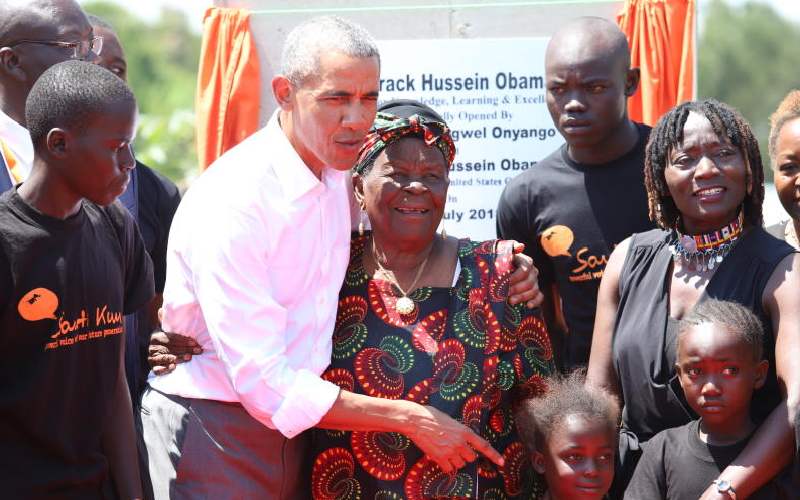
Former American president Barrack Obama flanked by his Kenyan family members Sara Obama and his half-sister Dr Auma Obama during the launch of Sauti Kuu at Kogelo village in Siaya County on July 16, 2018. [Denish Ochieng, Standard]
King Saul–as Israel’s founding king–had a chance to build a legacy. But he had problems with taking divine instructions. He modified them without consultation. He had self-generated ideas that contradicted his ‘boss’. This defiance without repentance led to his displacement and eventually, replacement. Surprisingly, he was not replaced by one of his tried and tested king-worthy aides. The appointment fell on an unknown shepherd boy.